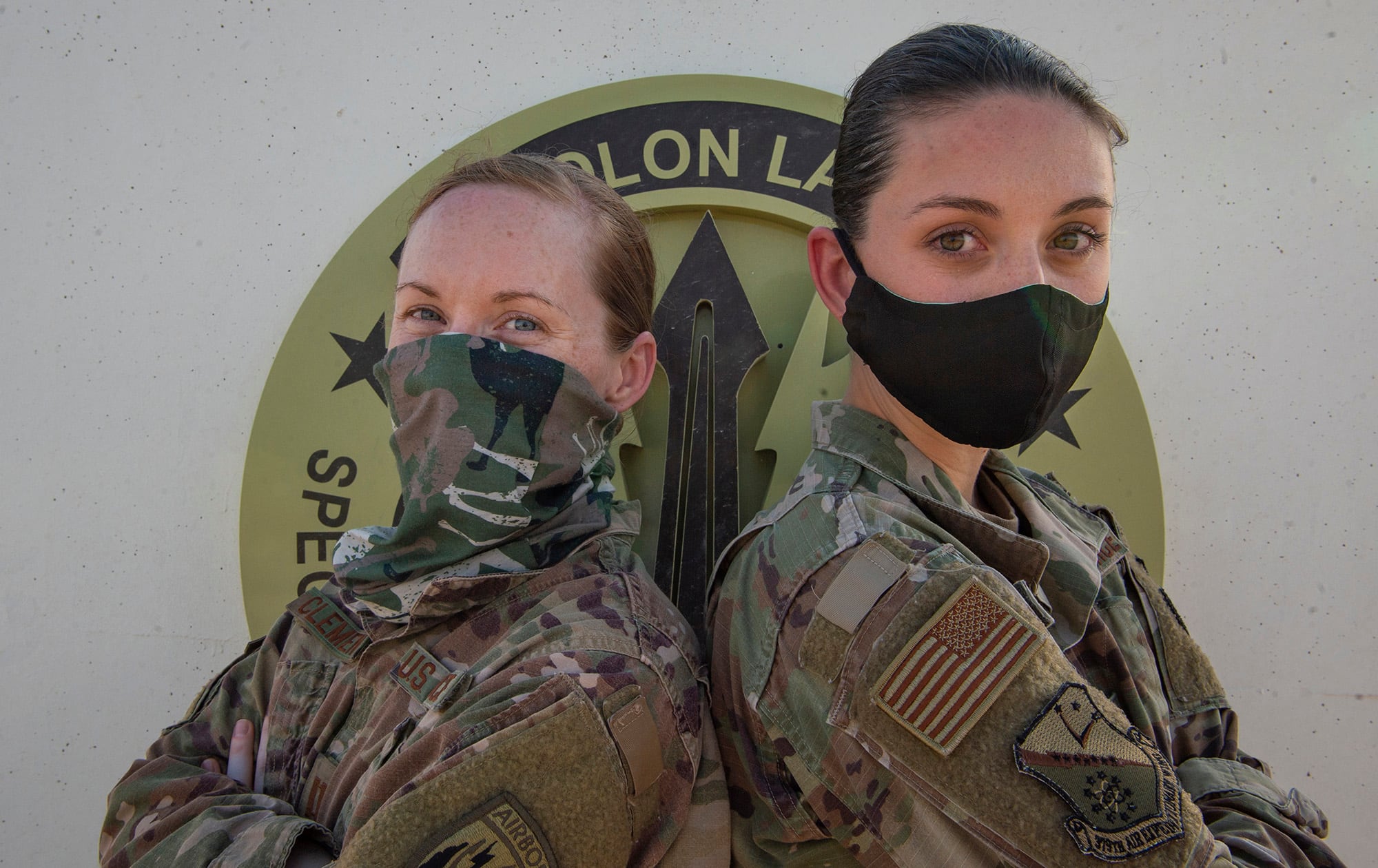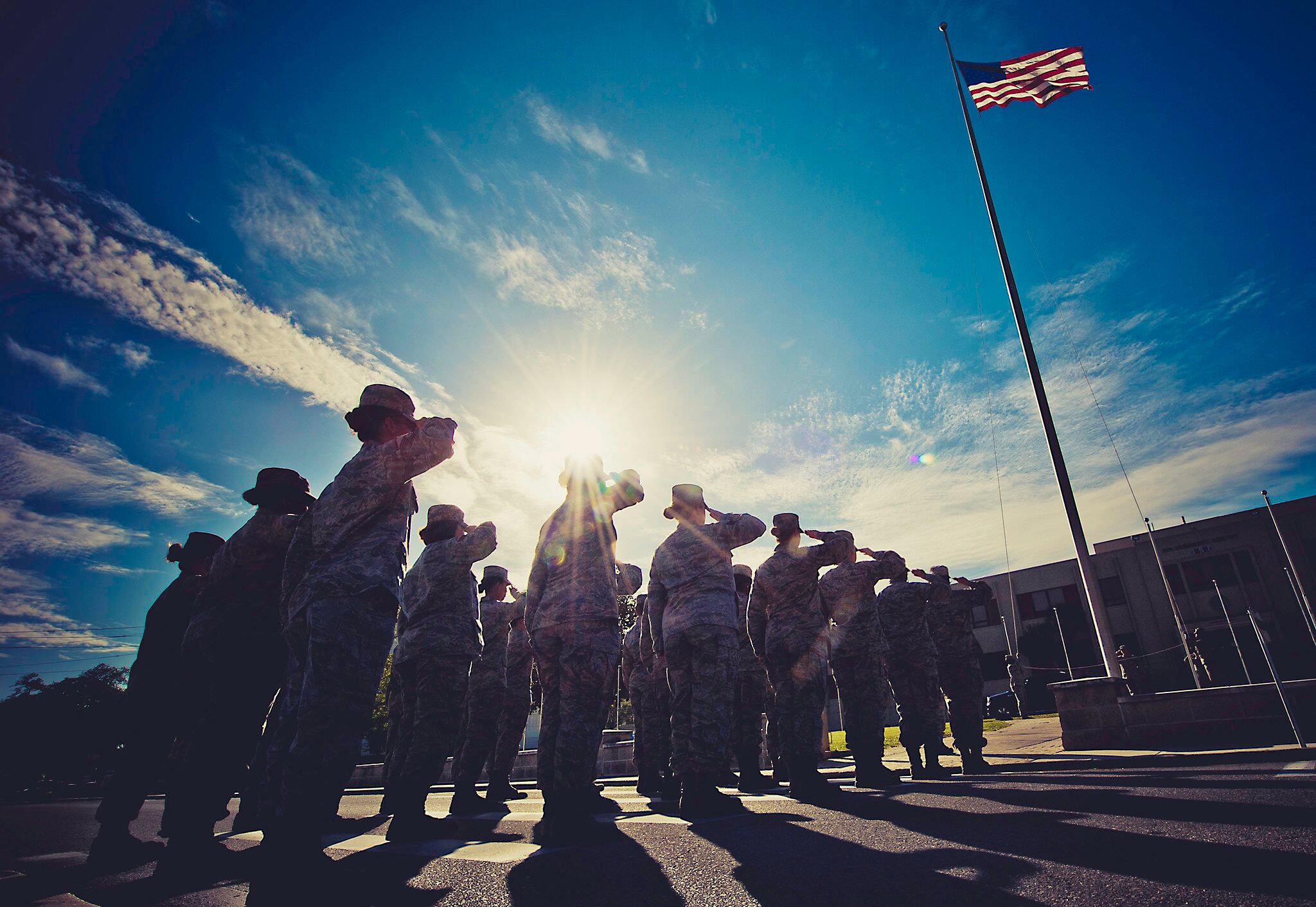Last week, the Air Force announced that it would be distributing a survey to Air and Space Force personnel about their experiences with interpersonal violence.
This survey is most likely in response to the recent rash of deaths at Fort Hood that were the result of interpersonal violence, including two cases of sexual harassment or assault. Spc. Vanessa Guillen was murdered, dismembered, burned, and buried after telling family that she had been dealing with sexual harassment at work. Sgt. Elder Fernandes, who recently went missing after reporting sexual abuse, was found dead. His death was determined to have been a suicide.
Ironically, the comments on the Air Force’s Facebook announcement might indicate why we continue to have problems with interpersonal violence in the military.
One individual, whose profile says that he is an Air Force veteran who graduated from the Air Force Academy, commented: “More political correctness. Just stop it.” Another veteran, who claimed to have previously served as a first sergeant, commented: “Why don’t you just give them all a blankie and get on with life! My God, what is happening with my Air Force. Now, let the offended begin to bash me because their feelings got hurt!” Another said: “AIR FORCE CONCENTRATE ON THE MISSION — social justice is not part the mission.”
This is a reaction that truly boggles the mind — the mental leap from the problem of airmen being harassed, raped, or otherwise physically abused to the conclusion that Air Force culture is somehow oversensitive or excessively politically correct, that those who speak out against sexual harassment or assault are “snowflakes” who have been “triggered.”
But this kind of language — and the sexual harassment that often precedes it — frequently appears in open military internet forums.
This week, Air Force Staff Sgt. Heather Fejerang bravely submitted a commentary to the Air Force Times about sexually harassing comments directed at her on People of the Deid, a “humor” page for those who are deployed or have deployed to Al Udeid. She was deployed with her sister, who is an Air Force officer, and the Air Force had written an article on their deployed experiences together. Air Force personnel and veterans on People of the Deid responded by asking when their porn would be available and with other similarly degrading remarks.
RELATED

A week later, a story about a mother and her daughter followed, with similar comments about pornography. Those who objected to these comments were shouted down as “snowflakes” who are too easily “triggered” and unable to take a joke.
This treatment of women is common on pages like these. A few months ago, there was a thread on another Air Force page advertising a patch-designing contest. When some men submitted designs consisting of cartoon women and/or their body parts and lewd sayings, several women and even some men objected, only to be dragged through the mud by other male colleagues; one respondent referred to them as “triggered, butt-hurt females.”
In another instance, last year, People of the Deid shared a photo of three military women at the base swimming pool in their swimming suits, and several followers responded to call them ugly, fat, and sluts, and to speculate on their sexual behaviors based on their posture or the location of their tattoos. Women who responded were called “sensitive cows” who are unable to take a joke — a man who stood up for them was attacked by being asked the whereabouts of his genitals. In the more recent scenarios, People of the Deid eventually warned its followers that some commenters were being disciplined by their leadership who had been notified of the comments, and some of the members of the page discussed the possibility of getting anonymous profiles so that, in future, they could sexually harass female military personnel in relative safety.
Why are these individuals so insistent on degrading women and degrading those who stand up for them? I can only theorize.
In many of these comments, I get the sense that these individuals, and those who responded to the Air Force’s post about its survey, need to feel like they belong to an elite organization of rugged men in order to feel validated, and that the presence of women, and the Air Force’s responses to them being harmed, threatens that validation — snowflakes, indeed; triggered, indeed. The irony is that the warrior ethos that is bound up in the masculine ethos they are so insistent on preserving supposedly includes notions of valor and camaraderie that seem to be lost on those who think women must prove their mettle by allowing themselves to be victims, and that caring for them when they have been physically attacked is somehow contrary to masculine principles. These attitudes are true for veterans as well when they voice distress that “their” Air Force is changing — is pandering to women, is becoming too soft.
I have experienced the flip side in which I have been told that I would need to “toughen up” and work extra hard to “prove myself” to the men in the ranks in order to belong — as if my male counterparts were the judge and jury of my belonging, despite my talents and achievements.
But this didn’t just include meeting and exceeding physical fitness or military training demands to keep up with my male peers, a somewhat reasonable expectation. Some of my peers' words and behaviors suggested that they expected other behaviors of me to prove that I belonged. I had to accept various forms of harassment and degradation of women in casual conversation.
One example was when I first joined the Air Force and was told by some of my new male colleagues that all military women are MULES: Married, Ugly, Lesbians, Enlisted, or Sluts. The implication was that I had already been placed in one of these categories as my peers because my sexual desirability and availability was somehow a matter of relevance to them. I was afraid of the professional consequences of objecting, and I had been conditioned to believe that scenarios like these were just some of the challenges I would have to “tough out” in order to belong.
I really wish I’d fought back against it. I wish I understood then what I understand now: that the military is not a “boys' club” and hasn’t been for many, many years. The military is a “whoever-meets-military-standards” club — period. I wish someone had told me that women have nothing to “prove” other than that they can meet military standards — the exact same thing men have to prove. Simply being male does not guarantee admission to the “club.” If it did, we wouldn’t have a recruitment problem.
Why, then, do women have to accept these strange, demeaning, cruel, and even unlawful rites of passage to belong? As a cadet and again as a new lieutenant, I thought I had to compromise my dignity and accept demeaning treatment to prove myself to “boys” who were all too confident that they belonged just by virtue of being male, and they got to enjoy that feeling of superiority, of knowing that I had to prove myself to them.
I’m reminded of that when I see specific military women publicly degraded by obscene comments on pages visible to thousands and even millions of followers, and even more when I see those who object shouted down as being “snowflakes” or “triggered” or “butt-hurt.” Being expected to endure this kind of harassment as a matter of course projects women in the military as second-class citizens. I’m sure you can imagine how such an environment could allow sexual assault, and for those who report it to be attacked — and in Ms. Guillen’s case, even to be murdered, burned, dismembered, and hidden away for months before being found. And then, when the Air Force tries to prevent similar tragedies, it is accused of a similar softness, a “political correctness.”
One is reminded of the troubling remarks retired Air National Guard Lt. Col. Betsy Schoeller made on Facebook in response to the outcry over the Vanessa Guillen case: “You guys are kidding, right? Sexual harassment is the price of admission for women into the good ole boy club. If you’re gonna cry like a snowflake about it, you’re gonna pay the price.” It’s an ugly rendering of our military, but I wish we could do a better job of proving her wrong.
Maj. Grace Miller is an aircraft maintenance officer currently serving as an Air Force legislative fellow.
Editor’s note: This is an Op-Ed and as such, the opinions expressed are those of the author. If you would like to respond, or have an editorial of your own you would like to submit, please contact Military Times managing editor Howard Altman, haltman@militarytimes.com.





